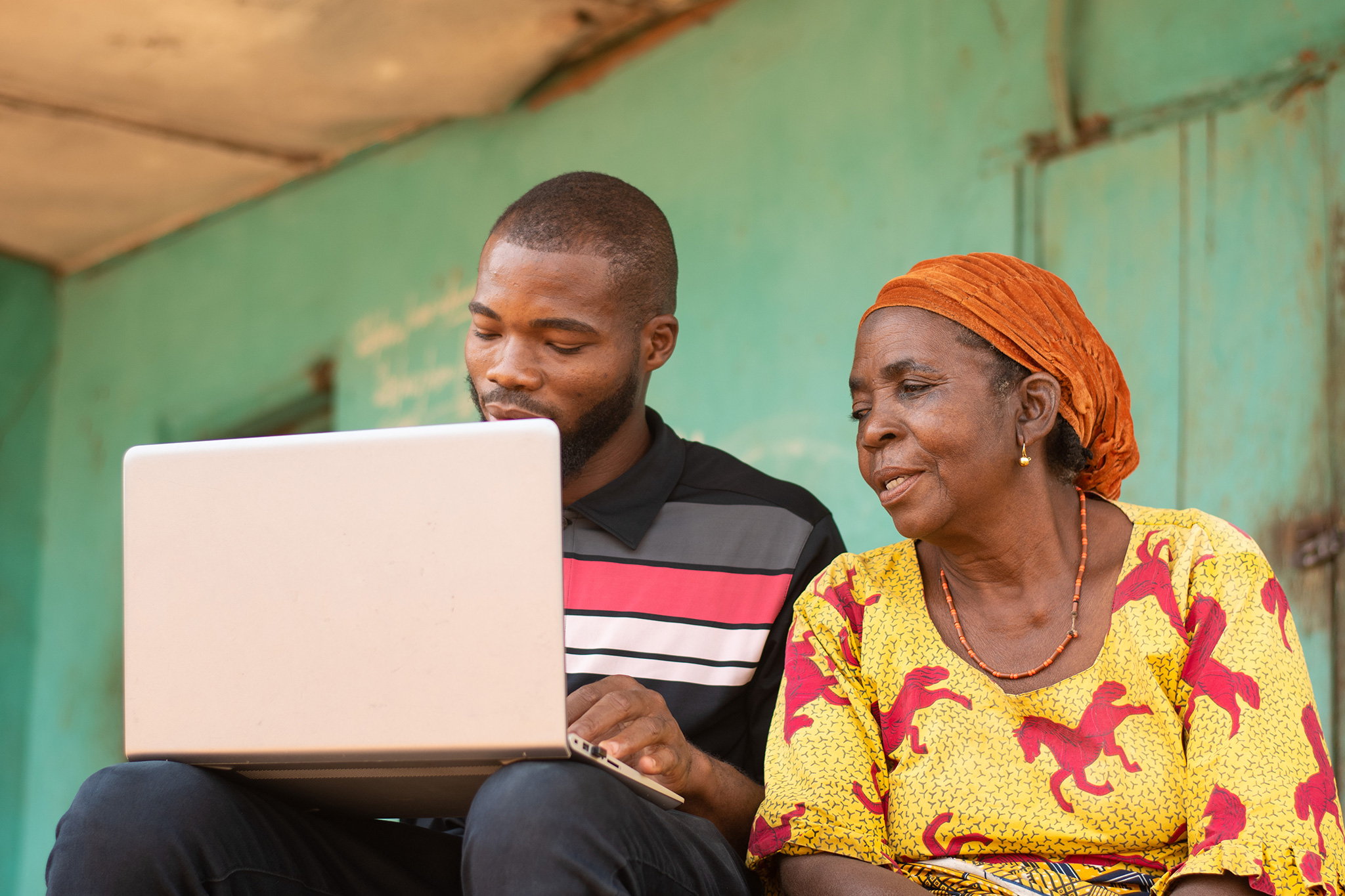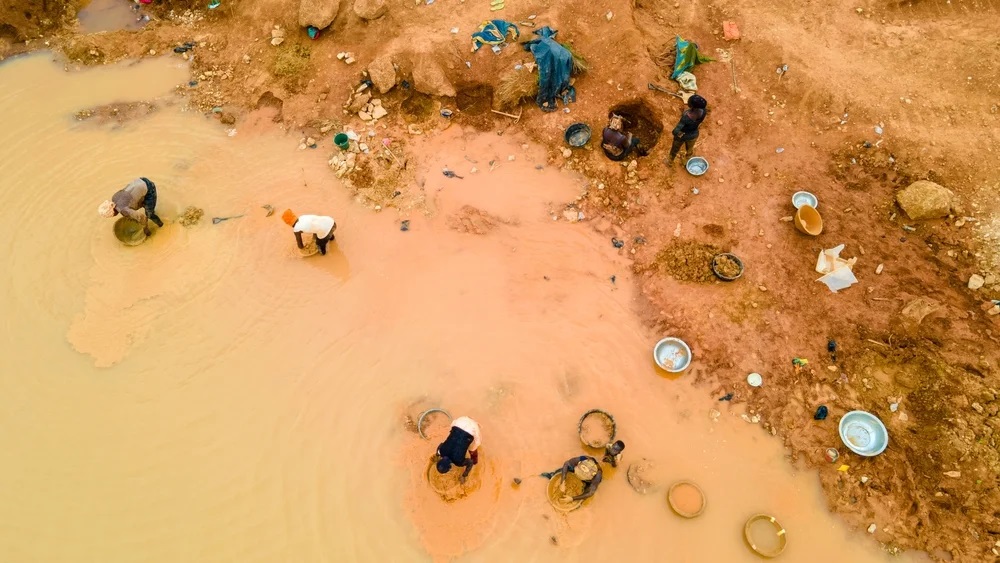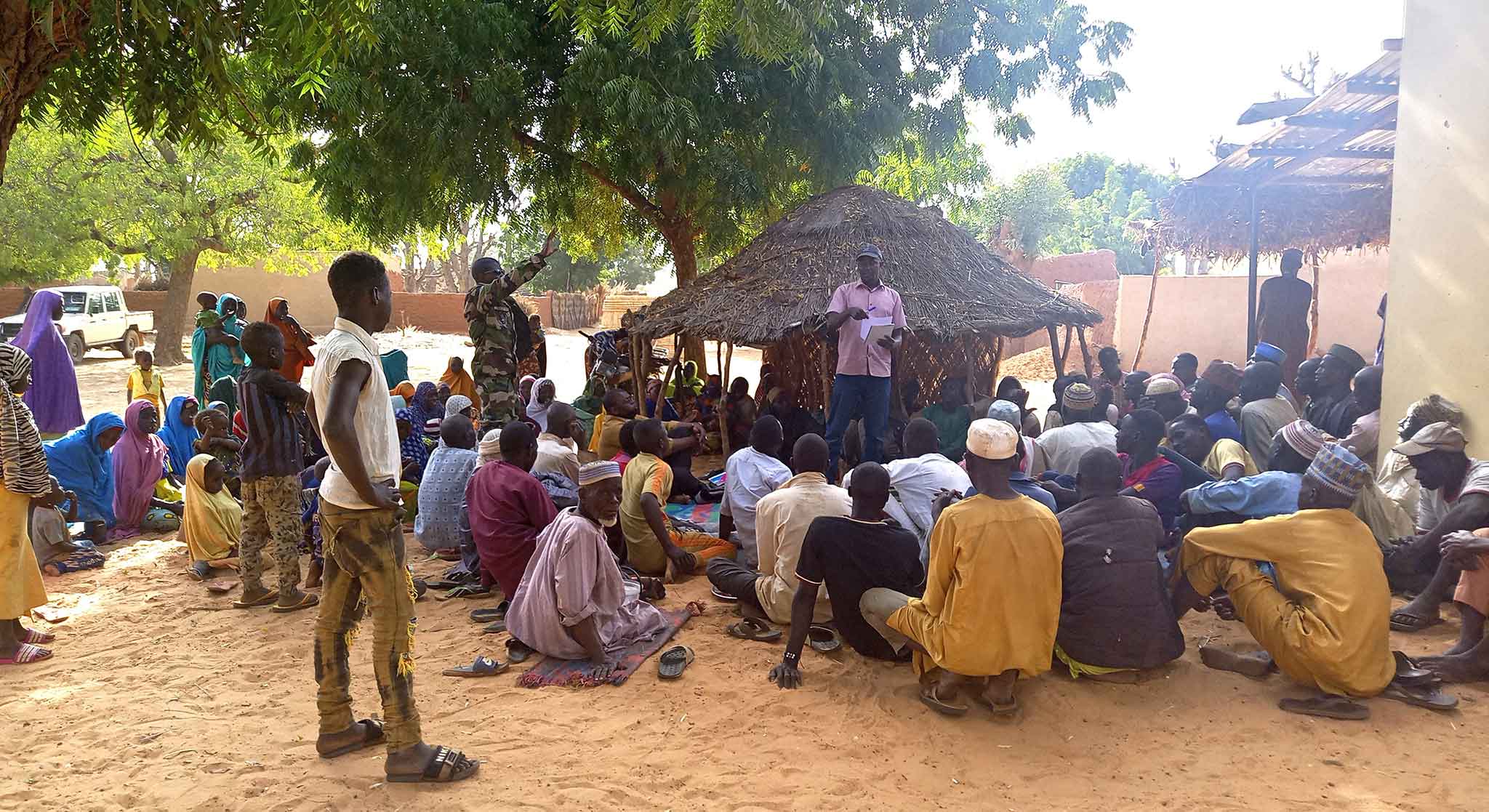SERVIR West Africa Empowers Burkina Faso’s Community of Practice
Technical experts, youth representatives, and women’s groups in Burkina Faso were recently trained to analyze land degradation neutrality and assess its impact on community conservation and restoration plans.
Over 150 women and 200 youth participated recently in training sessions, organized by ISESTEL (Institut Supérieur d’Études Spatiales et Télécommunications), the main partner of the SERVIR West Africa Program in Burkina Faso. The capacity building started with a training of the trainers during a 3-day face to face sessions from 22-24 April 2024. At the training of the trainers 15 women and 15 youth from project’s communes in Burkina were initiated to geolocation. In turn, the trainers replicated the same training to their members of their respective communities, reaching out to 150 women and 200 youth.
Engaging Youth in Geospatial Mapping
School staff and students were the focus of the first training session, ensuring a balanced representation of males and females. Participants received training in geospatial observation, positioning, and data downloading for mapping purposes. In a first day session, young people from secondary and higher education institutions were empowered to observe changes in land cover and provide valuable insights to land management authorities.
Integrating Women in Land Restoration
The second day catered to women’s associations, integrating them into activities centered on land degradation neutrality through reforestation efforts in both cultivated and degraded areas. Participants were introduced to geospatial platforms and the creation of a Women’s Forum page. The women also learned about the application of land degradation neutrality to income-generating activities, with a focus on effectively marketing their agricultural products through ISESTEL’s geo-spatial platform.
Session 3 on the final day, targeted the training of local authorities, including members of the Special Delegation (PDS) of Burkina Faso, including representatives from land services, technical services, agriculture, environment, and customary communities, received training on land degradation neutrality, carbon markets, conservation strategies, and the local land charter process. This session aimed to equip local authorities with advanced strategies for sustainable land management and conservation.
“The SERVIR WA Program has been a game-changer for our municipality, equipping urban planning experts and other government agents with enhanced skills in geolocation and the use of geospatial data for community planning. We urge an expansion of the SERVIR WA’s Communal-Level Service to encompass the entire commune of Bobo Dioulasso, beyond its current coverage of just two districts,” stated Ms Salimata Karambiry, General Secretary of the Arrondissement 2 (Bobo-Dioulasso) Municipality Office.
“The importance of geolocation for effective local development planning cannot be overstated. We are also requesting regular updates of this data to support informed decision-making at the municipal level,” added Ms Karambiry.
“Women’s participation in this training is essential. Given the prevalence of new technologies today and the fact that our associations primarily consist of women who may not be fully familiar with computer tools, capacity building in data collection and processing has been highly beneficial for us,” remarked Ms Gertrude Gossogo Toé from Association Yilimdé.
Environmental Inspector and training participant, Mr Adama Belle, believes that strengthening the capacities of technical actors and the municipality of Arrondissement 2 on the theme of carbon neutrality, in connection with land degradation, is an important and timely initiative.
“Carbon neutrality improves our land’s productivity and its capacity to store carbon. During this training, we were introduced to actions that could help our communities capitalize on the carbon market,” explained Mr Belle.
He emphasized the role of participants in promoting tree planting, especially among associations and communities, and highlighted the crucial role of local authorities, particularly customary leaders, in identifying suitable reforestation sites and mobilizing communities. Mr Belle further stressed the need for sustained efforts in maintaining reforestation initiatives for long-term success.
“This workshop is a crucial step towards meeting community needs. We greatly appreciate SERVIR WA’s support, especially in geolocation and capacity-building across Burkina Faso,” concluded Mr. Siegfried Sigaro Sanou, President of the Special Delegation (PDS) in Arrondissement 2.
All participants were trained to contribute to the development of their respective communal planning processes and information about the training was produced and disseminated through community radio stations.
Additionally, the workshop facilitated the production of a video highlighting the collaborative achievements of the SERVIR West Africa program within Arrondissement 2 of Bobo-Dioulasso. The video showcases the participants’ understanding of SERVIR West Africa’s objectives and how the program’s activities align with local needs.
Click below to view a video report by a workshop participant (in French).
This article is made possible by the generous support of the American people through the United States Agency for International Development (USAID) and the National Aeronautics and Space Administration (NASA). The contents are the responsibility of SERVIR WA and do not necessarily reflect the views of USAID, NASA or the United States Government.
Photos: P. Sanou, ISESTEL.







